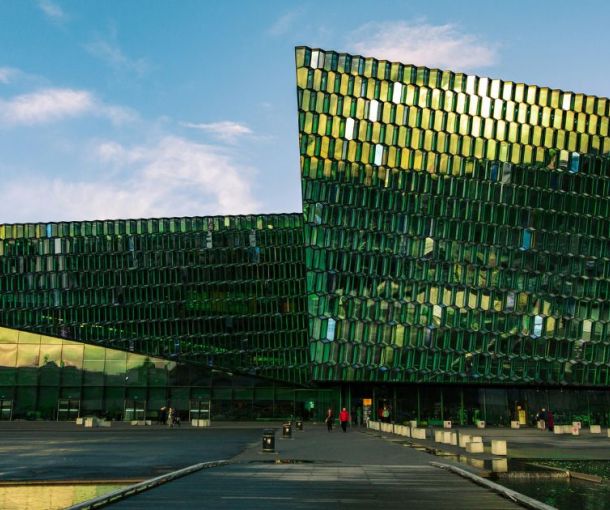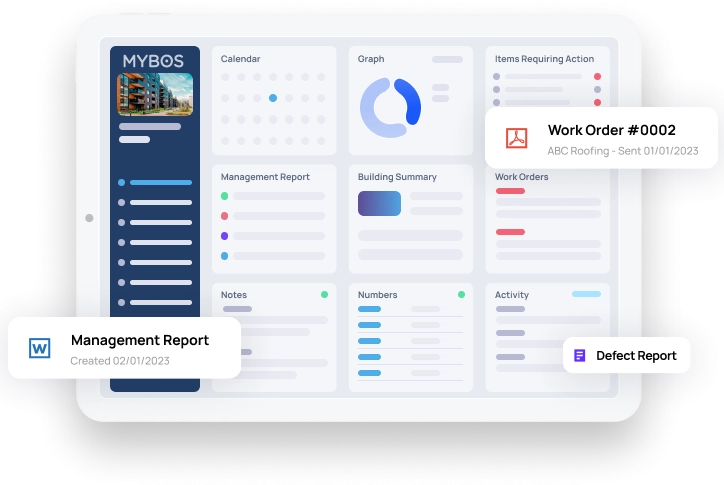
What Does a Facility Manager Do?
Facility managers play a crucial role in ensuring that buildings and their operations run smoothly, efficiently, and safely. Whether it’s a commercial office, residential complex, healthcare facility, or educational institution, facility managers are responsible for overseeing everything from maintenance and compliance to space planning and vendor management.
As workplaces and buildings become more complex, the scope of a facility manager’s role continues to expand.
Cushman & Wakefield describe the typical day of a facility manager as one driven by data informed decision making. From the first task of the morning, they use real-time building analytics, especially in smart buildings, to prioritise maintenance, coordinate contractors, and preempt safety issues flagged by building systems. Using facility management software helps facility managers streamline these tasks, improve reporting accuracy, and ensure buildings operate efficiently and safely.
So, what exactly does a facility manager do day to day? This guide explores the key responsibilities, essential skills, and growing importance of facility management across commercial, residential, and strata buildings.
What Are the Key Responsibilities of a Facility Manager?
A facility manager ensures the efficient operation of a building and its infrastructure. Their goal is to make sure that the environment supports its users, whether they are tenants, staff, or guests in a safe, clean, and functional space. According to NSW Fair Trading, facilities managers must maintain everything from lifts to fire safety systems, and ensure all compliance obligations are met.
Facility managers work in a range of sectors and settings, including residential apartments, office towers, universities, hospitals, and industrial complexes. While the scope may vary, the focus remains on maintenance, operations, health and safety, and budgeting.
From daily operations to long-term planning, facility managers are responsible for keeping buildings functional and efficient. Here’s a breakdown of their key duties:
| Operations and Maintenance | Routine inspections of equipment and systems Preventative and reactive maintenance Managing service contractors and vendor relationships |
| Health, Safety and Compliance | Ensuring buildings meet fire safety and occupational health regulations Updating evacuation procedures Performing regular safety audits and inspections |
| Budgeting and Resource Allocation | Managing operating costs and repair budgets Planning for capital works Monitoring energy and water usage |
| Tenant and Stakeholder Communication | Liaising with tenants, building owners, and service providers Handling service requests and feedback Ensuring high tenant satisfaction |
In essence, a facility manager plays a vital role in keeping buildings safe, efficient, and responsive to the needs of both owners and occupants.
For tips on managing inspections when supporting building and facility safety, check out our MYBOS guide Why Regular Building Inspections Are Critical for Property Managers.
Common Daily Duties of a Facility Manager
While responsibilities can vary by building type, most facility managers share a set of core daily tasks that keep operations running smoothly. Here are some of the most common day-to-day duties:
- Logging and tracking maintenance issues
- Creating and updating asset registers
- Scheduling inspections
- Overseeing cleaning and landscaping services
- Managing waste removal
These day-to-day responsibilities ensure that the facility runs smoothly, remains compliant, and provides a safe and comfortable environment for all users.
Many facility managers rely on digital platforms to streamline these tasks. Read more on how automation is changing facility management.
What Are the Essential Skills for a Successful Facility Manager?
To manage diverse responsibilities effectively, facility managers require a combination of technical and soft skills. Here are key skills of a facility manager:
- Organisation and multitasking: Juggling multiple work orders and emergencies.
- Technical knowledge: Understanding HVAC, electrical, plumbing, and safety systems.
- Communication: Clearly explaining issues and updates to stakeholders.
- Problem-solving: Responding quickly to building issues and emergencies.
- Data literacy: Reading dashboards and generating reports on performance metrics.
These skills help facility managers handle everything from energy efficiency to tenant retention and unexpected breakdowns.
KPMG’s 2021 Real Estate Data Strategy Survey found that only about 39% of real estate firms had centralised data systems and just 28% used data to improve tenant experience.
This highlights the need for facility managers to not only access data but translate it into actionable insights, using dashboards to detect performance trends, report on maintenance KPIs, and proactively address system inefficiencies.
Embracing Smarter Facilities: Evolving with Technology and Data
As property and facilities management evolves, data is playing a more central role. With the help of digital tools, facility managers can now:
- Track real-time asset performance
- Generate reports with key metrics (e.g., energy usage, response times)
- Monitor operational efficiency
FacilitiesNet highlights that modern facilities leverage integrated platforms. Like CMMS and smart building systems, to pull real-time data from sensors, automate maintenance workflows, and provide comprehensive dashboards.
These platforms enable predictive maintenance, faster issue resolution, and data-driven decision-making, transforming facility management into a proactive, strategic function rather than a reactive one.
Choosing the Right Partners and Tools
For many teams, working with the right contractors can make or break daily operations. Facility managers often collaborate with trades, service companies, and software vendors. Before hiring contractors, review these Top Questions to Ask Before Hiring a Facility Maintenance Contractor.
Additionally, adopting smart facility maintenance management tools can drastically improve service delivery. MYBOS, for instance, provides an all-in-one platform that simplifies communication, reporting, and task management.
Final Thoughts: Why Facility Managers Matter
From responding to maintenance requests to managing energy usage and compliance reporting, facility managers play a crucial role in ensuring the safety, functionality and efficiency of our built environments. As buildings get more complex, the demand for skilled and tech-savvy managers is only set to grow.
If you’re a facility manager looking to improve operational efficiency and gain more visibility over daily tasks, MYBOS offers the tools you need to succeed.
Ready to take your facility management to the next level? Book a demo today to explore how MYBOS can support your building operations.




